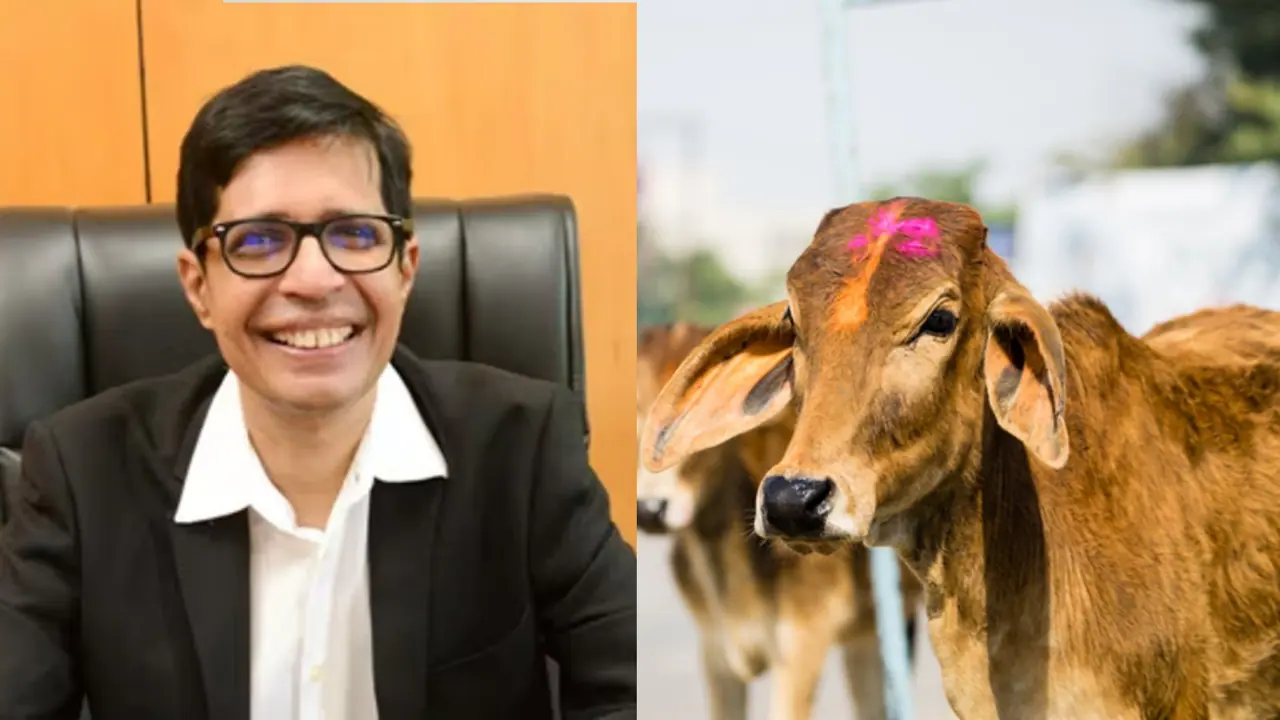A video of IIT Madras Director V Kamakoti allegedly praising the 'medicinal value' of 'gomutra' (cow urine) has gone viral on social media.
A video of IIT Madras Director V Kamakoti allegedly praising the 'medicinal value' of 'gomutra' (cow urine) has gone viral on social media. The remarks were made during an event at a Go Samrakshana Sala on Maatu Pongal (January 15, 2025), where he spoke about protecting indigenous cattle breeds and promoting organic farming.

While addressing the gathering in Chennai, Kamakoti shared an anecdote about a sanyasi who reportedly cured a high fever by consuming gomutra. He claimed that cow urine possesses "anti-bacterial, anti-fungal, and digestive properties" and advocated for its potential use as a treatment for conditions like Irritable Bowel Syndrome.
The director emphasized the importance of organic farming and highlighted the economic and agricultural significance of indigenous cattle breeds. His comments have sparked discussions online, with many weighing in on the purported medicinal properties of gomutra.
The rationalist outfit Dravidar Kazhagam condemned IIT Madras Director V Kamakoti’s remarks on the ‘medicinal value’ of gomutra (cow urine), calling them “shameful” and contrary to scientific truth.
DMK leader TKS Elangovan criticized Kamakoti, alleging that the central government’s objective is to “ruin” the country’s education system.
Thanthai Periyar Dravidar Kazhagam leader K Ramakrishnan demanded proof to substantiate Kamakoti’s claims or a public apology. “If he does not apologise, we will stage protests against him,” he warned.
Congress leader Karti P. Chidambaram also denounced the remarks, tweeting: “Peddling pseudoscience by @iitmadras Director is most unbecoming. @IMAIndiaOrg.”
IIT Madras Director V Kamakoti, speaking on the importance of ‘Go Samrakshana’ (cow protection), highlighted its economic, nutritional, and environmental benefits.
"We can forget Bhoomi Mata (mother earth) if we use fertilisers. The quicker we switch to organic, natural way of farming, only that is good for us," Kamakoti said.
He advocated for the use of biogas and urged against converting agricultural land for non-farming purposes, such as constructing houses or commercial establishments like marriage halls and cinemas.
Reflecting on Thomas Babington Macaulay (1800-1859), the British official credited with introducing the Western education system in India, Kamakoti alleged that Macaulay sought to eliminate indigenous cattle, which he described as the backbone of India’s economy, to push the nation into a state of economic slavery.
The IIT Director also pointed to the establishment of large slaughterhouses during the British era, including one that reportedly had the capacity to slaughter 30,000 cows daily.
Emphasizing the significance of indigenous breeds (Naatu Maadu), Kamakoti called for concerted efforts to protect them, as they form the foundation of organic farming, which he said is vital for strengthening the economy.
"If farmers say that they will not produce grains, from where a man could get his food?," he asked.
IIT Madras Director V Kamakoti highlighted the institute’s involvement in the Regenerative Agriculture Stack Architecture programme during his speech at a goshala event. He announced that IIT-M would work on a 'Goshala Automation' project aimed at reducing operational costs, producing biogas, and creating Panchagavyam, an organic product derived from cow-based resources.
Sources close to Kamakoti told PTI that his remarks were made in the context of his broader advocacy for organic farming and protecting indigenous cow breeds, which are under threat. They added that his views were supported by scientific studies, including a paper published in Nature titled "Peptide profiling in cow urine reveals molecular signature of physiology-driven pathways and in-silico predicted bioactive properties."
As an organic farmer himself, Kamakoti’s statements reflect his personal commitment to sustainable practices. He has served as the Director of IIT Madras since January 17, 2022, and is a recipient of several awards, including the DRDO Academy Excellence Award (2013) for his contributions to scientific research and technology development.
The event was held as part of Maatu Pongal, the second day of the Tamil month Thai, a festival that honors cows and bulls for their vital role in agriculture. It is marked by poojas and celebrations that express gratitude for their contribution to farming and allied activities.
